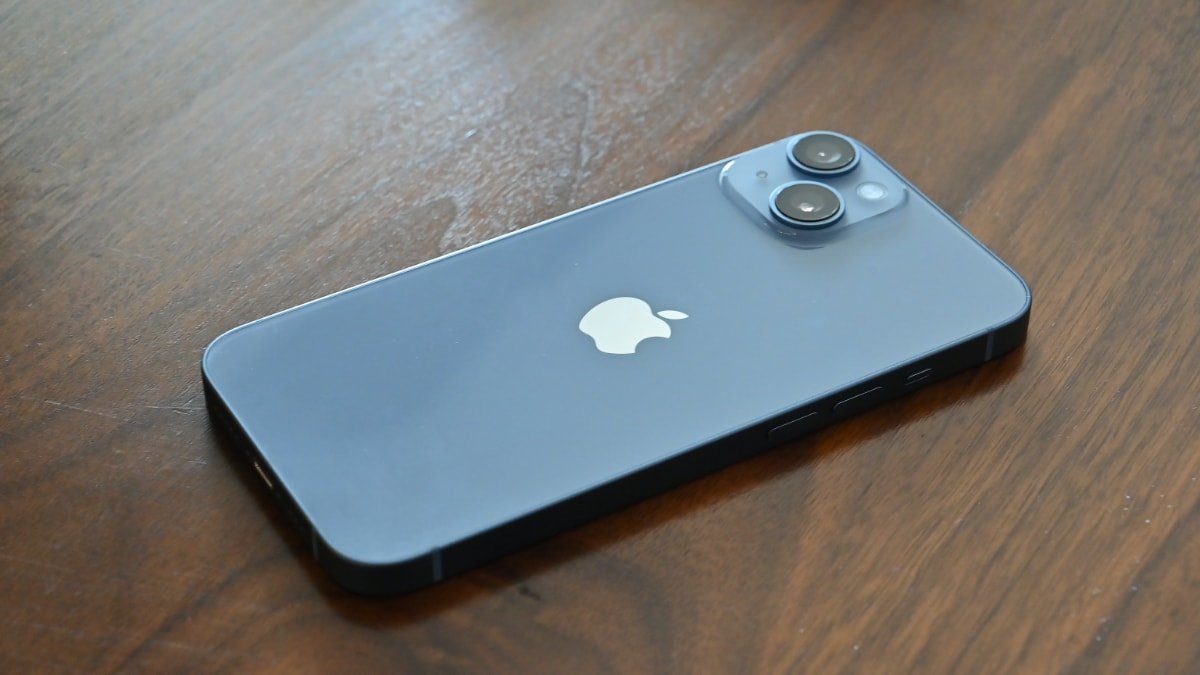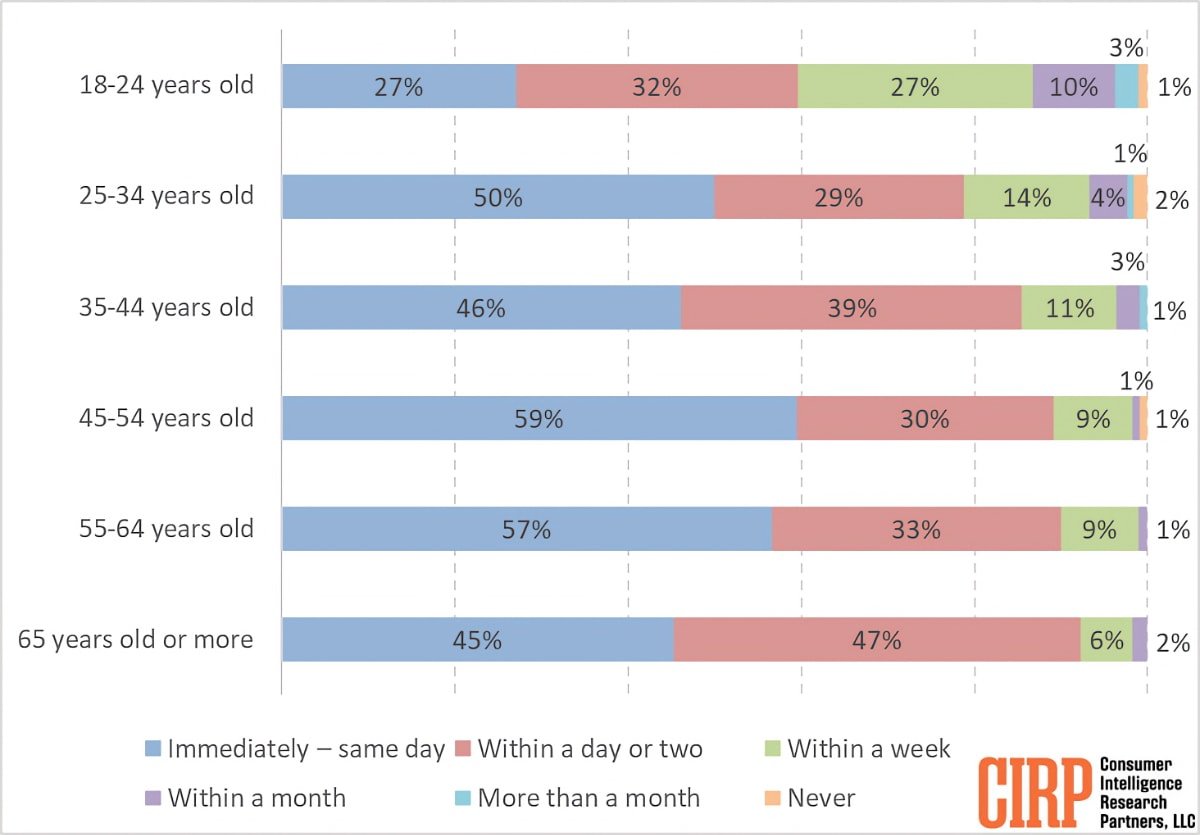A new study sheds some light on iPhone addiction, and there are some conclusions that defy conventional wisdom and assumptions about the differences between younger and older customers.

iPhone 14
A new report from Consumer Intelligence Research Partners (CIRP) examines the issue using data from a recent study along with an old one from April 5. That report looked at how quickly people replace or repair their Apple devices.
Most respondents -- over 80% -- said they would replace a lost, stolen, or broken iPhone immediately or within a few days rather than waiting. Only 6% of respondents said they would wait more than a week for a functioning iPhone.
CIRP's new report on Wednesday looks at how that view changes based on a person's age. For example, younger people don't replace their devices as quickly as older folks.

Timing to repair or replace a lost, stolen, or broke iPhone
Only 60% of customers between 18 and 24 said they would replace an iPhone immediately or within a few days. However, the urgency rises with age, revealing that nearly 90% of consumers aged 45 or older would replace a device immediately or within a day or two.
It might be related to financial health, as older people tend to have more money than younger people and can afford to replace a device more quickly.
The numbers are slightly different for the iPhone and Mac, with 45% to 50% of the 18-24 group would replace a device immediately or within a few days. But, again, that rises with age, with 78% to 93% of people aged 25 to 54 who would quickly replace a gadget.
However, for these devices, the sense of urgency to repair or replace declines for iPad owners over 55.
Timing to repair or replace a lost, stolen, or broke Mac
The drop is considerably more evident among older buyers of Mac computers. For example, a Mac computer would be replaced by almost half of the 18 year to 24 year age group within a day or two, but only about one-third of people aged 65 or older would immediately replace a Mac or within one or two days.
Although the reasoning behind the discrepancies isn't 100% clear, other than budget differences, it clearly distinguishes between generations. Maybe the kids are alright.